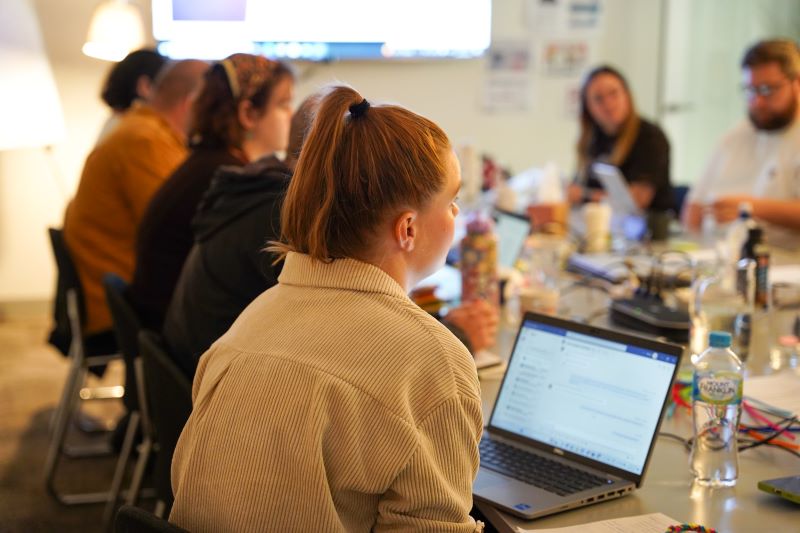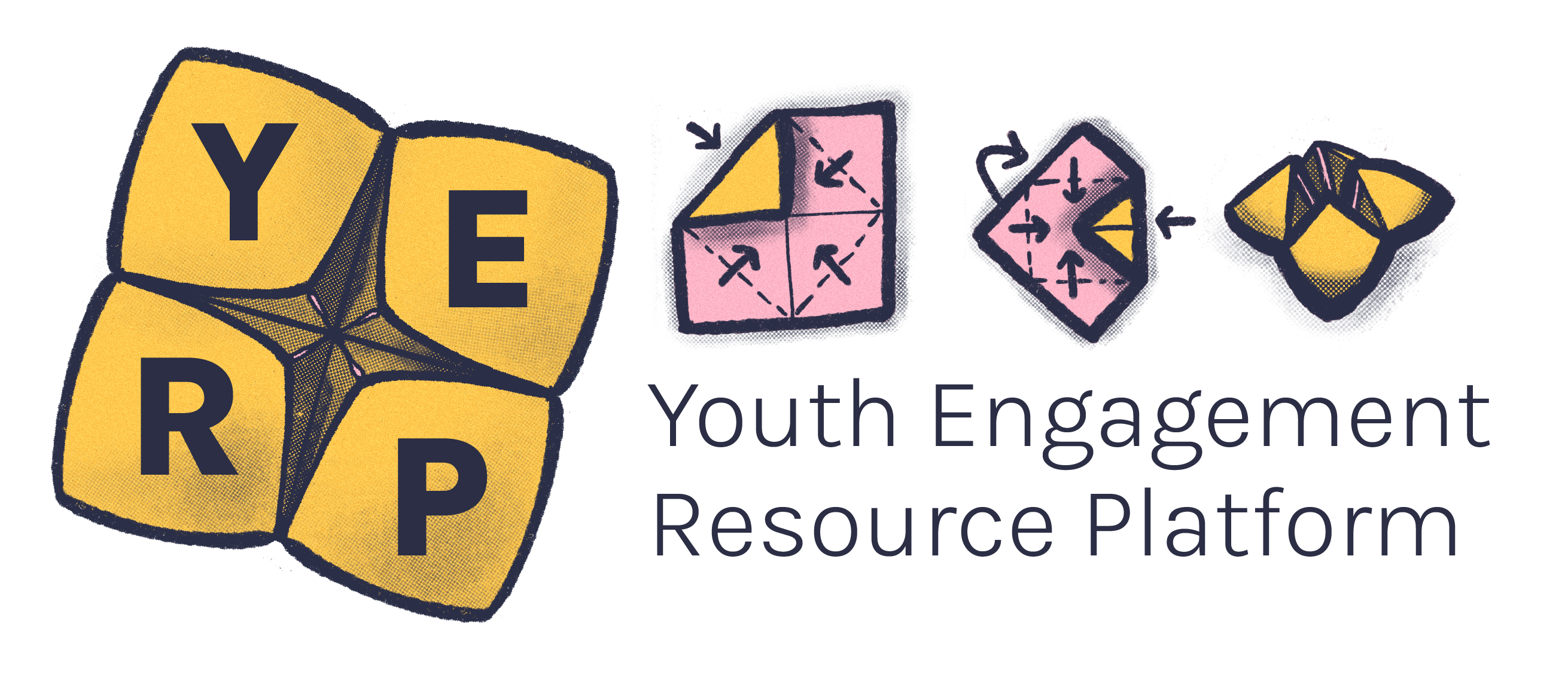Youth work has many focus areas and the young people you work with may have a number of complex and intersecting identities and experiences.
Like any profession, you will benefit from continuous learning by building your confidence, knowledge and skills.
When choosing a training, consider:
-
Who designed the training?
-
Was it informed by a young person?
-
Does it include perspectives from lived experience where appropriate?
-
Be mindful of the language that programs use to describe themselves. Look for language which is strengths-based and focuses on social justice approaches to working with young people.
Some suggestions:
-
Before you book the training you can reach out to the organisation and talk through what you’re hoping to achieve. You'll be able to work out pretty quickly whether they’re the right organisation for you. Word of mouth is a great way to find out about trainings.
-
Outline your current level of understanding to see which level of training will be best suited to you.
-
Talk to your workplace to see what they offer in terms of budget for professional development.
-
Check out what opportunities there are for free workshops online, you’d be surprised what’s on offer!
-
Some training courses may include content with sensitive material. Make sure to read through the information pack before starting.
-
Take breaks if training is self-paced, and check in with your supervisor or the person providing the training for extra support if you need.
A photo of a worker in training.

Our understanding of young peoples’ development is constantly evolving, and so are the social and political environments we work in.
Youth workers can continuously deepen their understanding of theories related to adolescent development, psychology, and social sciences through conferences, short courses, and training days. This knowledge will guide your approach to working with young people and ensure you're following the most current best practice.
Cultural safety training supports youth workers in creating services which are safe and accessible for Aboriginal and Torres Strait Islander people. This includes how a service is delivered and how it is experienced by the people who access it.1
Cultural safety training may include:1,2,3
-
Recognising the diverse identities of First Nations peoples and learning
-
Cultural load (the workload placed on Aboriginal and Torres Strait Islander peoples to provide Indigenous knowledge, education, and support) and its impacts on individuals, communities, and organisations
-
The historical and ongoing impacts of colonisation on First Nations communities
-
Fostering respectful relationships with First Nations peoples and communities
-
Understanding the history and contemporary culture of Aboriginal and Torres Strait Islander peoples
-
Understanding self-determination and why it's important.
Culturally responsive training supports youth workers in creating services which are inclusive and respectful of peoples’ cultural diversity.4,5
There are some common themes and experiences which youth workers can understand to ensure they’re more inclusive and culturally responsive.1
-
Strengths-based understanding of some pre-migration experiences
-
Cultural competency and safety framework (a framework to guide an organisations’ values, governance, planning of services, communication, and staff development to be culturally responsive)
-
Cross-cultural communication (understanding that culture is not homogenous, and learn about other cultures in a respectful manner)
-
Supporting good settlement (understanding the unique experiences young people may face in Australia including what support is available, how to grow social networks, and working with community).4,5
Check out the Centre for Multicultural Youth for more info.
There are so many different types of training for the areas of anti-racism, allyship and anti-oppression.
It’s about taking a social justice approach to your work, and being proactive about addressing systemic inequalities which exclude or discriminate against young people due to their cultural identities, practices, or beliefs. This training can also be about self-reflection and understanding your own unconscious biases, privileges and the role you play in society and your work.6
Hue has some great training options in these areas.6
- YoDAA is Victoria’s Youth Drug and Alcohol Advice service for young people or someone concerned and looking for help. The Youth AOD toolbox at YoDAA.org.au is full of great resources
- Insight's E-Learning electives
- Turning Point's training programs
- RMIT's Certificate IV of Alcohol and Other Drugs
- RMIT's Diploma of Alcohol and Other Drugs.
Training in alcohol and other drug support will provide insight into harm and risk minimisation techniques, prevention and early intervention associated with substance use, with a focus on the safety and health of young people.
AOD training should be strengths-based, with a focus on working with young people to develop goals and seek alternatives to substance use in their lives.
Disabled young people
We highly recommend checking out the Youth Disability Advocacy Services’ (YDAS) ‘Together Training’ in this area. YDAS is an advocacy organisation that works with disabled young people aged 12 to 25, and provides resources and training designed by disabled young people for disabled young people and the people that work with and support disabled young people.
-
Understanding the models of disability
-
Intersecting identities
-
Access needs and how to meet them
-
How to ask questions
-
How to make events and meetings accessible
-
Working towards allyship
-
Assumptions, biases and microaggressions.
We highly recommend checking out ACON and Zoe Belle Gender Collective.
-
Key concepts and definitions of sex and sexuality, gender and gender identity, inclusive practice, and awareness.
-
Issues of discrimination
-
History of LGBTIQA+ social justice
-
Pronouns and inclusive language
-
How to practice allyship
FVREE are the primary provider of specialist family violence services in Naarm (Melbourne). They also invest in prevention, early intervention and education across the state and beyond.
-
Recognising and responding appropriately to clients’ experiences of domestic and family violence
-
Best practice for language and legally appropriate approach to case notes
-
Supporting victim survivors of tech-facilitated abuse
-
Understanding and using the Multi-Agency Risk Assessment and Management (MARAM) Framework
-
A framework that assumes the person you are working with has experiences of trauma, and incorporates several principles to create safety and support this.Trauma-informed practice and the unique impacts of family violence.7
Mental Health First Aid Australia has a range of great evidence-based training that will give you the skills to recognise and respond to someone experiencing a mental health problem or mental health crisis, until professional help is received or the crisis resolves.8
Other options include Workshops - Orygen, Revolution in Mind, as well as TAFE certificates or post graduate courses Allied Health Courses - Online, TAFE Courses.
Mental Health First Aid Australia training includes:
- Early intervention support; recognising signs of mental health problems in young people
-
Providing skills to speak openly and appropriately about mental health
-
How to respond and minimise risk in crisis situations
-
Reducing stigma and increasing support for young people experiencing mental health problems.
Training can help improve confidence in responding to young peoples’ mental health needs and improve understanding of what supports are available.8
It will help you understand what youth participation is and how to make it meaningful. It provides you with techniques for involving young people in decision-making processes and program planning in authentic ways.
We also highly recommend the youth participation training that we offer!
-
What youth participation is
-
The fundamentals of youth engagement
-
Meaningfully embedding the voices of young people in your programs
-
Different models of youth participation
-
Building communities of practice to support ongoing learning
Check out the following:
- Blue Knot - range of webinars and training programs for building baseline knowledge and practice in trauma awareness.
- Berry Street - course for educators about the benefits of supportive, trauma-informed teaching on child development
- Australian Childhood Foundation - programs for educators in schools and early years settings.
-
Developing an understanding of trauma and the impact it can have on an individuals’ health and development
-
Identifying common trauma response behaviours
-
Learning strategies for working with young people who have experienced trauma
-
Creating safe environments and building trust
-
Identifying and supporting young people with complex needs.9
We recommend the following:
- Discuss your needs with your line manager or HR to see if anything can be delivered across the organistion or by staff in-house.
- Conflict Resolution Network has a huge list of free resources.
- Contact your union as they can often provide training for free.
- Pathways Australia training
- Swinburne University of Technology's short course
The Centre for Excellence in Child and Family Welfare's Outcomes, Practice and Evidence Network has a range of great resources, modules and templates to use in your work. They also offer regular training (free for DFFH funded programs).
There’s also some great resources available on Yulang Indigenous Evaluation.
Check with your line manager about the Government Departments funding your programs as they regularly provide training in the evaluation methods they require to be used.
Other options include VET unit Evaluate a community-based program which various TAFEs will offer – contact your local provider.
Consider IPAA Victoria's Program Evaluation and Assessment Masterclass.
We highly recommend our Code of Ethical Practice training!
-
Why ethical practice is important in youth work
-
An overview of ethics and ethical theories
-
Youth work ethical principles
-
Youth work ethical responsibilities
-
Dealing with ethical dilemmas at work
Some of the common training providers:
A Community of Practice (CoP) is a network of likeminded professionals who come together to share resources, discuss case studies, and support ongoing learning within their field.
CoP’s provide networking opportunities and can be used as a form of supervision and supports reflective practice. CoP's are a resource for new ways to engage with, empower, and support young people.
If you’re interested, YACVic coordinates the Youth Participation Practice Network (YPPN), a thriving network of Victorian professionals who are committed to empowering young people through youth participation, youth engagement and supporting the voice of young people.10
Find out more about CoP's on the Collaborative youth work page.
- ABSTARR. (n.d.). Learning. https://abstarr.com/learning/
- Victorian Aboriginal Community Controlled Health Organisation. (n.d). Cultural Safety Training.https://www.vaccho.org.au/cultural-safety-services/aboriginal-cultural-safety-training/
- Sivertsen, N. (2023). ‘Easing the ‘cultural load’ for Indigenous people in the workplace’.Law Society of New South Wales Journal. https://lsj.com.au/articles/easing-the-cultural-load-for-indigenous-people-in-the-workplace/
- Centre for Multicultural Youth. (2015). Culturally-Competent Youth Work: Good Practice Guide. https://www.cmy.net.au/wp-content/uploads/2020/02/Culturally-Competent-Youth-Work-2016.pdf
- Children and Family Intensive Support, (n.d). Cultural Safety and Responsiveness. https://www.dss.gov.au/system/files/resources/cafis_3c_-_cultural_safety_and_responsiveness.pdf
- Hue, Colour the Conversation. (n.d). It’s time to colour your conversations. https://huecolourtheconversation.com/
- Safe+Equal. (n.d). Training Courses and Events. https://safeandequal.org.au/training-events/browse/
- Mental Health First Aid Australia. (2023). Youth Mental Health First Aid. https://mhfa.com.au/courses/public/types/youthedition4
- Emerging Minds. (2023). In focus: Trauma-informed care. https://emergingminds.com.au/resources/in-focus-trauma-informed-care/
- Youth Affairs Council Victoria. Youth Participation Practice Meetings YPPN. https://www.yacvic.org.au/get-involved/events/yppn/
Related Topics
Disclaimer: For the purposes of YERP and based off feedback from our co-designers, we use ‘Cultural Safety’ as a broad definition to include young people from all diverse backgrounds, not just focusing on Aboriginal and Torres Strait Islander young people.
For more information, please see our ‘explainer’ for the Diversity and Inclusion topic for youth sector workers.





